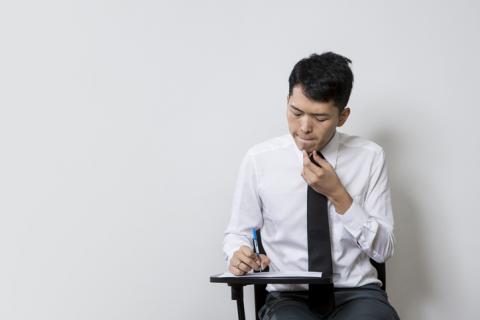What is the gao kao?
China’s National College Entrance Examination (NCEE), or gao kao, is the admission test that all final-year school students in the country must take they wish to win a place in a Chinese university.
It is often considered one of the hardest school exams in the world. In early June, the whole of China goes into lockdown to accommodate the nation’s exam candidates. Traffic is reduced to a minimum; students are given priority access and free travel on the Metro. Thousands of volunteers are installed to provide directions to test centres.
The contents of the test are thought to vary across the provinces, but generally they include Chinese literature, mathematics and a foreign language (usually English). If students choose to study liberal arts while at high school, they will need to take additional tests in history, politics and geography. If they choose science, they will have to take tests in physics, chemistry and biology.
Other languages that are often included are French, Japanese, Russian, German and Spanish. The exam is a mixture of multiple-choice and essay questions.
Before sitting the gao kao, students must fill in a form listing the universities they wish to get into. Each university has a minimum intake score, which a student must achieve to win a place. If they miss the score, they will be passed on to another university on the list.
If a student does not meet any of the requirements for their universities, they will have to retake the test the next academic year. There is no age limit to taking the gao kao and no limit on the amount of times you can sit it.
The exams last about nine hours and take place over two or three days.
How can you prepare?
The final year of high school in China is dedicated to preparing students for the exam. Practice papers are taken daily, and desks are piled high with books and study notes.
Some parents will employ tutors or send their children to private after-school study sessions. It is not unheard of for students to start their preparation from kindergarten, balancing schooling with English tuition, music lessons and sports matches.
One of the best ways to prepare for the gao kao is to work through practice papers. All schools will provide students with practice papers and conduct simulated exams to accustom students to exam conditions.
It is also good to ensure that you know what will be on the test and study those subjects in detail. While you will not have specific knowledge of the test paper, teachers will prep you on the topics most likely to come up.
Taking private tutor sessions or joining study groups can help to boost your knowledge. Additionally, eating and sleeping well can enhance your concentration levels.
University life in: China
International perspective: an American student in China
The cost of studying at a university in China
Five reasons why you should study in China
International students
International students are currently not required to take the gao kao to be accepted to a Chinese university. The Chinese government has recently amped up efforts to attract more international students to the country. International students must sit entry exams for individual universities, but those are considered to be less difficult than the gao kao.
The government has also introduced a number of other elements to entice international students, such as scholarships, more courses taught in English and better campus accommodation for foreign students.
Controversy
The test is not without its critics. It is thought that many students have experienced stress, anxiety and depression in the lead-up to the test and have buckled under the pressure. Family pressure is also a huge issue, with many parents expecting their children to study for hours on end. Many parents see the test as determining not just which university you attend but also which job you end up in and your future social status.
It is also thought that students from lower socio-economics backgrounds are at a disadvantage in the exam because they cannot afford to hire private tutors or attend extra tuition groups. However, the gao kao is still widely regarded as the fairest way to test all would-be university students across a vast country and to ensure that all candidates are tested in the same way.
Additionally, it is argued that the gao kao does not actually assess whether students have a well-rounded education because it focuses on how much information students can retain and how they can translate it on to an exam paper.
In fact, the number of students who have taken the test has shrunk in the past few years. This may be down to the widening of higher education opportunities and the increasing number of Chinese who choose to study abroad.
But millions of students still take this test every year. If you are one of them, just remember to breathe and try the best you can.
Read more: Best universities in China

Comments